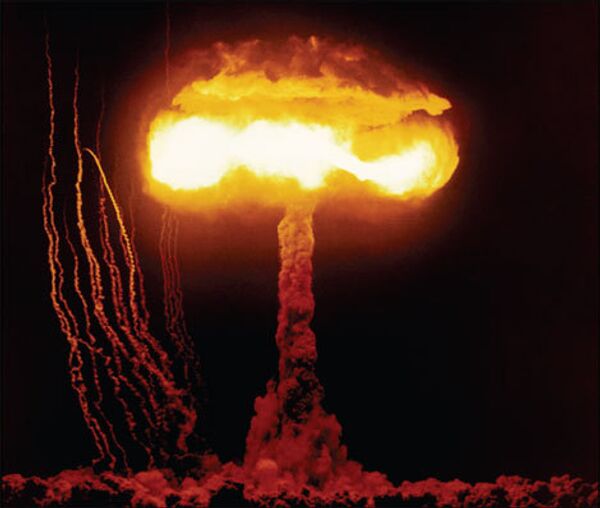The international community will meet in New York for the eighth UN Review Conference on the NPT from May 3-28, 2010, to assess the treaty's implementation.
Held every five years since the Non-Proliferation Treaty was signed in 1968 and became international law in 1970, the Review Conferences have not helped make great strides towards a nuclear-free world. The previous conference, held in 2005, almost ended in scandal, with the attendees unable to agree a final document.
Since it is clear that the non-proliferation regime must be strengthened to prevent the appearance of new nuclear powers, this year they will try to hammer out ways of doing this.
It is a truly Herculean task, given the numerous differences between the signatories, who are to discuss who should do what to strengthen non-proliferation and what they must sacrifice in the process. A review of "achievements" to date would be useless, as their only achievement came in 1995, when they decided to extend the treaty indefinitely.
Since the late 1940s, the world's powers have been trying to limit access to their nuclear club and to encourage other countries to develop only civilian nuclear projects. When the NPT was signed in 1968, the nuclear club included the United States, the Soviet Union (Russia), Britain, China and France, although the latter two countries did not sign the treaty until 1992.
Since then, more countries have become nuclear powers and the number of signatory countries has reached 188. India carried out its first nuclear test in 1974 and exploded nuclear and thermonuclear warheads in 1998. Pakistan did this in 1998, and North Korea in 2006. Israel also has the bomb, and reputedly has between 100 and 200 nuclear warheads, although Israel refuses to confirm or deny this.
Israel, India and Pakistan have not signed the treaty.
Iran announced in 2006 that it had the technology to produce nuclear fuel in its laboratories. South Africa also had a nuclear weapons program and allegedly held a nuclear test jointly with Israel in 1979. However, it later terminated its program and joined the NPT.
Libya, Iraq, Taiwan and Syria also experimented with the weapon-grade nuclear materials but have discontinued their programs for different reasons.
The treaty has many drawbacks, but it at least outlined the rules of conduct in the nuclear sphere. Now the international community needs to strengthen them, that is, if it wants to prevent a catastrophe.
The five largest nuclear powers have long learned how to play by the rules and are unlikely to use nuclear weapons. It is the so-called threshold countries that could provoke a catastrophe through their excessive vigilance.
Israel has twice delivered strikes on "suspect" nuclear facilities in neighboring Middle Eastern countries: in Iraq in 1981, and in Syria in 2007.
The United States and Great Britain invaded Iraq in March 2003, claiming that Iraq's alleged possession of weapons of mass destruction (WMD) posed a threat to their security. In the current situation, the Middle East is unlikely to emerge from another Israeli strike, this time on Iran, without catastrophic consequences.
This year's Review Conference is expected to turn the tide; it has to because it is the future of the NPT, which has been disintegrating between and even during the Review Conferences, and the non-proliferation regime as a whole, that is on the line.
The world is now pinning its hopes on Barack Obama, who promised to promote nuclear disarmament and arms control last spring in the Czech capital Prague. Under Bush, the U.S. avoided talking about the NPT and the nuclear test ban treaty and did nothing to promote non-nuclear policies. It was busy fighting terrorism and had no time for the nuclear threat.
The Obama administration has apparently come to see that non-proliferation includes the fight against terrorism, in particular nuclear terrorism, and has put nuclear disarmament high up its agenda.
This could encourage developing countries to embrace nuclear non-proliferation. Many of them continue to see nuclear non-proliferation as a dictate in disguise, emanating from the world's industrialized states which are unwilling to share their military and civilian nuclear monopoly on the atom.
In short, the world's numerous problems cannot be resolved at one Review Conference. Besides, a group of 188 countries is highly unlikely to come to an agreement on anything quickly. But they need to begin somewhere.
The opinions expressed in this article are the author's and do not necessarily represent those of RIA Novosti.
MOSCOW (RIA Novosti political commentator Andrei Fedyashin)

